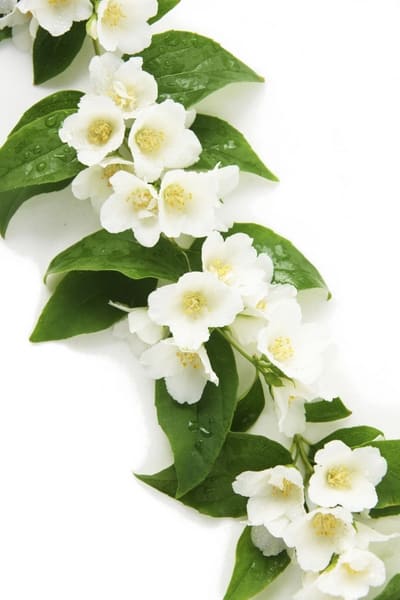
Overview
Aromatherapy emphasizes on inhaling the fragrance of essential oils in treating ailments. Topical application of essential oils is another popular aromatherapy treatment process. Aromatherapists suggest that the sense of smell plays a key role in stimulating the healing process. They believe that inhaling the molecules of the essential oil activates certain regions of the brain such as hypothalamus and amygdale that control the physical and emotional activities. The essential oil molecules that are absorbed by the skin during an aromatherapy massage are believed to interact with the enzymes and hormones in the blood. Aromatherapy essential oils are derived from different parts of the plant. The specific properties of each aromatherapy essential oil are attributed to the active components present in the oil.
The breakdown
A – Angelica
In aromatherapy, angelica essential oil is used for treating indigestion, anemia, skin irritation, psoriasis, congested skin conditions, colds, coughs, bronchitis, arthritis, rheumatism, gout, migraine, nervous conditions and stress. Pregnant women and diabetics should avoid the aromatic essential oil of angelica.
B – Basil
Inhaling the molecules of basil essential oil stimulates the adrenal cortex. In aromatherapy, basil essential oil is used for treating anxiety, fatigue, depression, respiratory discomfort, bronchitis, cold, fever, menstrual problems, gout and indigestion. People with sensitive skin, children and pregnant women should avoid basil essential oil.
C – Chamomile
It aromatherapy, chamomile essential oil is used for reducing inflammation, allergies, insomnia, stress, depression and digestion problems. It is recommended for treating emotional problems triggered by PMS and menopause. The essential oil should not be used by pregnant women.
E – Eucalyptus
Aromatherapists recommend Eucalyptus essential oil for reducing fever, clearing sinus congestions and reducing coughs. The antibacterial and antiviral properties of the essential oil of eucalyptus help to treat infections, pimples and boils. It might be unsafe for hypertension and epilepsy patients.
F – Fennel
The sweet earthly aroma of fennel essential oil helps to cure digestion problems and reduces stress. When combined with juniper essential oil it alleviates the symptoms of gout. It should not be used by pregnant women, epilepsy patients and people with sensitive skin.
G – Ginger
The warm spicy essential oil of ginger helps to treat arthritis, respiratory problems, colds, cough, indigestion, constipation, diarrhea, fatigue and fever. It could be used as an antidepressant.
H – Hyssop
Cough, cold, bronchitis, sore throat, asthma, edema and abdominal cramps could be treated with hyssop essential oil. It improves mood.
J – Jasmine
Jasmine essential oil acts as a natural antidepressant. It reduces cough and laryngitis. Women should avoid jasmine essential oil during pregnancy.
L – Lemongrass
The essential oil is used as an astringent and antiseptic. It helps to soothe the nerves and improves sleep. People with sensitive skin and pregnant women should avoid the essential oil of lemongrass.
M – Mimosa
In aromatherapy, mimosa essential oil is used for treating depression. It is also noted for its anti-inflammatory, antiseptic and astringent properties. Topical application of this oil might cause dermatitis in people with sensitive skin.
N – Nutmeg
Aromatherapy massage with nutmeg essential oil soothes muscle aches and inflammation, improves digestion, treats reproductive problems and promotes sleep. Large doses of nutmeg essential oil cause nausea and mental confusion. Pregnant women should avoid nutmeg essential oil.
O – Orange
The essential oil of orange is widely used in aromatherapy massage. It calms the mind, lifts the spirit, and promotes sound sleep. It is good for the skin and aids digestion.
P – Peppermint
Peppermint essential oil is beneficial for people suffering from indigestion. It clears chest congestion, reduces muscle and nerve pain and headaches, cleans wounds and alleviates motion sickness. Pregnant women should avoid peppermint oil.
R – Rosemary
As an aromatherapy essential oil, it is used for soothing sore muscles, clearing congestions in the chest, improving circulation, reducing inflammation, treating digestion problems, improving liver function, fighting infections and reducing depression. Pregnant women and people with hypertension and epilepsy should avoid this essential oil.
S – Sage
Sage essential oil is good for the nervous system. It treats indigestion and menstrual problems. Pregnant women and epilepsy patients should avoid this essential oil.
T – Thyme
Thyme essential oil provides relief from coughs and laryngitis. It is recommended for treating skin and bladder infections. Joint inflammation and digestive disorders could be cured with thyme essential oil.
V – Vetivert
The earthly fragrance of vetivert essential oil relaxes the mind. It helps to reduce blood pressure.
W – Wintergreen
Wintergreen essential oil alleviates joint and muscle pain. It is recommended for treating respiratory discomfort and improving lung function. This essential oil is not recommended for pregnant women.
Y – Ylang Ylang
The sweet aroma of ylang ylang essential oil alleviates stress and tension. It helps to lower high blood pressure and also acts as an aphrodisiac.








